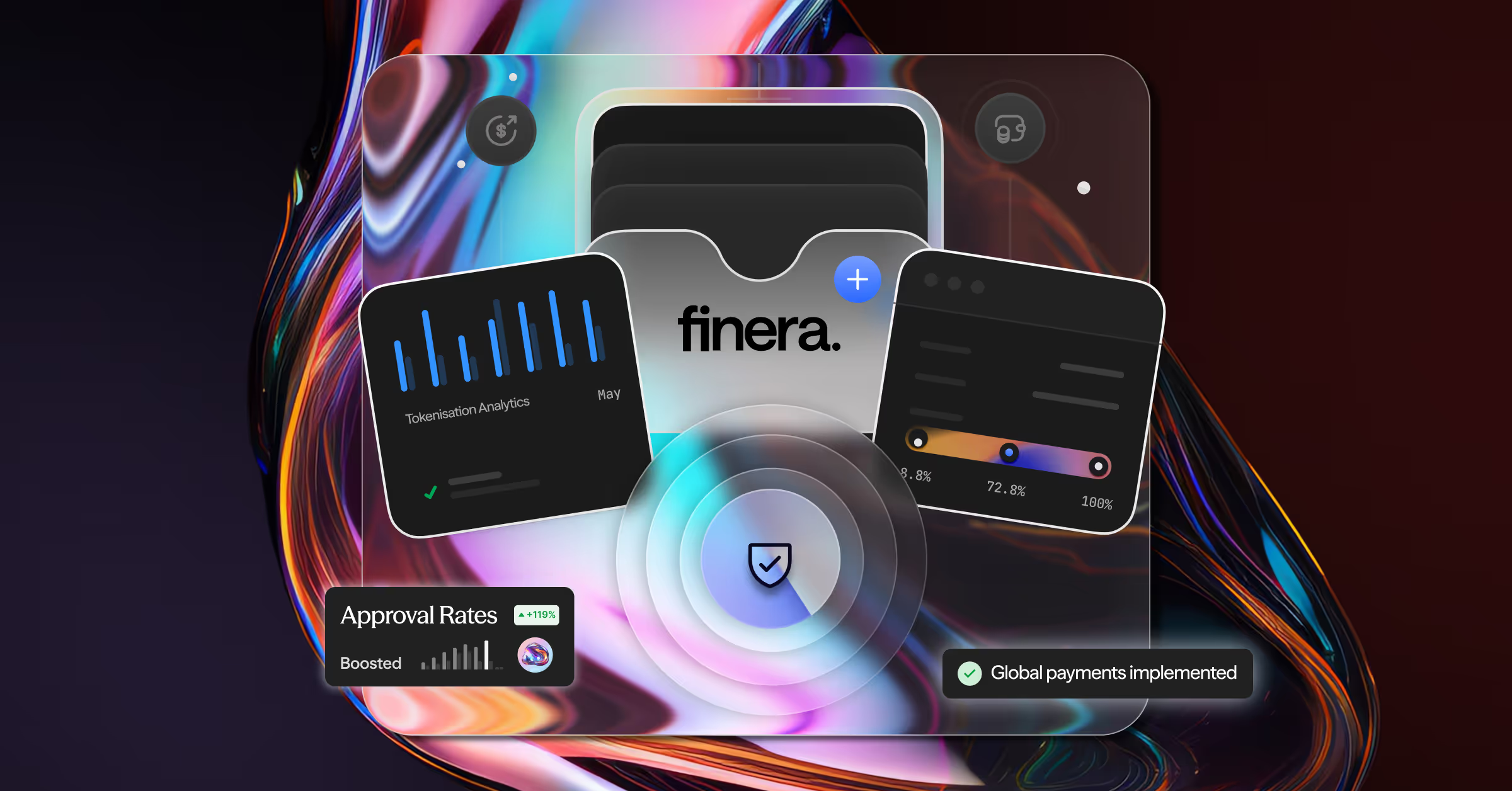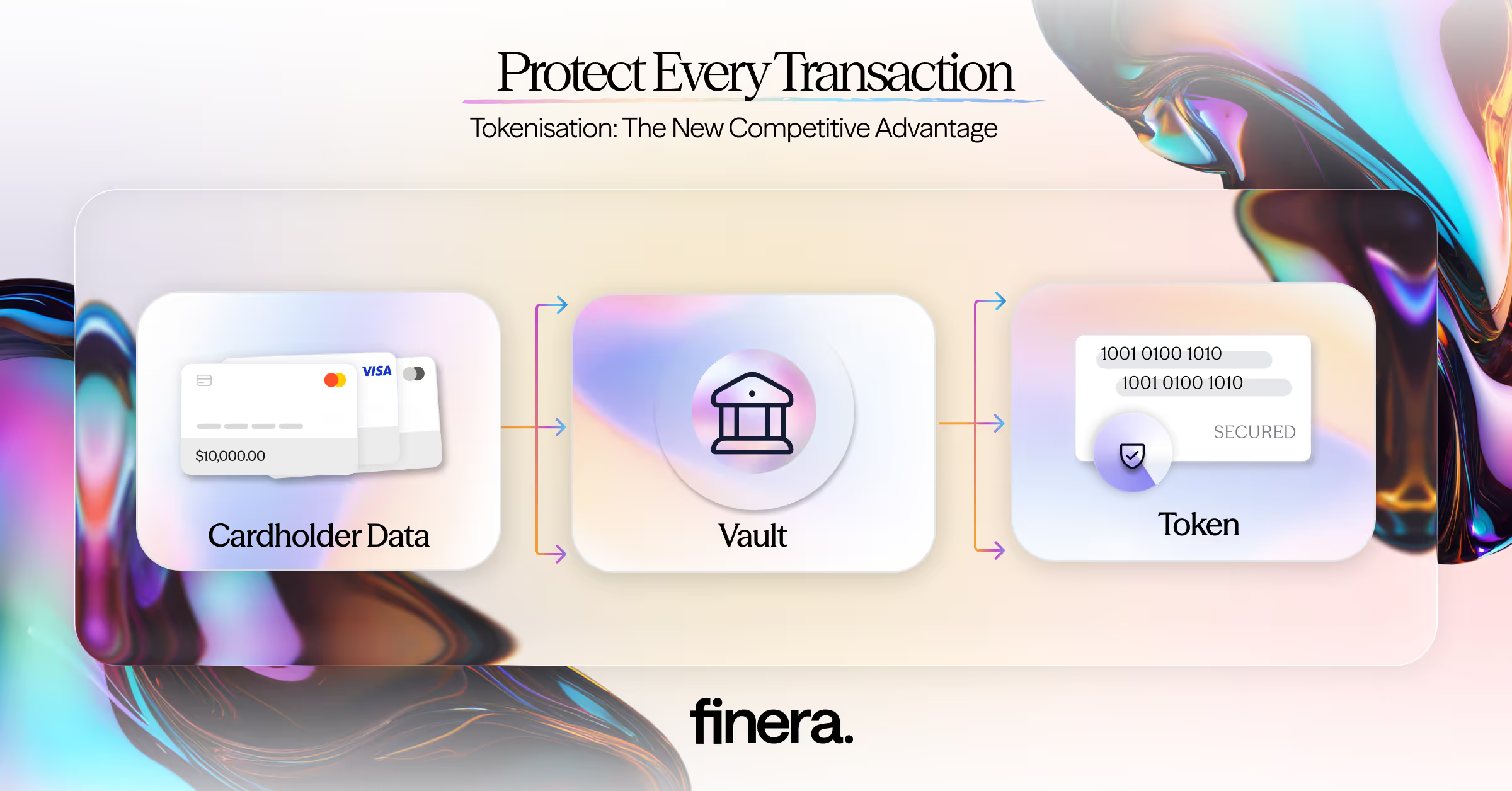7 Essential Benefits of Tokenisation for Businesses
Explore the top benefits of tokenisation for businesses. Higher approvals and less fraud.

Ever lost a customer at checkout even though their card should have worked? Wonder why some brands breeze through payments while others quietly bleed revenue? What if payments could be a competitive advantage instead of just a cost?
If you are asking these questions, you are already thinking like the next generation of winning merchants.
Today, the role of payments in business success is decisive. The brands that scale fastest are the ones that deliver seamless, secure, high-conversion payment experiences that customers trust and hardly even notice. Because in digital commerce, the smoothest checkout wins and the safest system earns loyalty.
And this is exactly why tokenisation has moved from a niche security feature to a core growth engine for modern merchants.
How Payment Tokenisation Works and Boosts Revenue for Merchants
Once viewed mainly as a cybersecurity tool, tokenisation has evolved into one of the most effective components in a payments strategy. It doesn’t just protect sensitive data, it improves authorisation rates, reduces failed transactions, and fraud exposure.
Here’s a step by step overview of how tokenisation works in payments:
Payment tokenisation replaces sensitive card data with a secure token that can be used for future transactions without exposing the card number.
- Secure Capture: Card details are submitted through a secure field.
- Token Generation: A token is created by the payment provider or card network.
- Vault Storage: The real card number is stored in a secure, PCI-compliant vault.
- Token Stored by Merchant: The merchant stores only the token, not card data.
- Payment Using Token: The token is used for future charges or one-click checkout.
- Secure Mapping: During processing, the token is mapped back to the card in a secure environment.
This means merchants do not handle raw card data, which can help reduce PCI scope, increase authorisation reliability, and improve payment security.

Payments Cards & Mobile decribe tokenisation as strategically significant in global finance, not a technical enhancement. PYMNTS.com reports that the majority of high-volume merchants now rely on tokenisation to power card-on-file payments, protect recurring revenue and reduce involuntary churn.
So what makes tokenisation so transformative? Why are innovative merchants prioritising it now? And how can it contribute to improve customer experience and better revenue performance?
Let’s explore the seven essential benefits driving its adoption.
Business Benefits of Payment Tokenisation
1. Reduced PCI DSS Scope and Compliance Burden
If your business handles customer card information, you know the pressure of PCI DSS compliance. Audits take time. Security controls require ongoing investment and every system that touches cardholder data increases exposure and complexity.
Tokenisation can significantly help change that equation.
By replacing sensitive card credentials with secure, irreversible tokens, tokenisation mayremove raw card data from your systems.
The PCI Security Standards Council notes that when implemented properly, tokenisation can help reduce systems from PCI scope, resulting in:
- Fewer high-risk systems to monitor
- Reduced audit scope and controls
- Faster compliance reviews
- Lower long-term security and infrastructure costs
This is not only a cybersecurity benefit but also an operational and financial one. Less time spent securing raw data means more time investing in customer experience and commercial priorities.
2. Higher Authorisation Rates and Reduced Declines
Every failed transaction represents not just a lost payment but potentially a lost customer. Card-not-present declines remain one of the biggest threats to online revenue, especially for subscription-based businesses.
Tokenisation helps address this issue. With network tokenisation, card credentials can be updated automatically whenever a bank issues a new card. No more expired cards. No disruption when a card is replaced. No customers lost due to avoidable payment failure.
Payment networks such as Visa report that tokenised transactions often achieve higher approval rates than standard PAN transactions. PYMNTS.com research reinforces this point, highlighting that merchants using tokenisation experience meaningful improvements in authorisation uplift and subscription renewal success.
Customer acquisition costs are rising and preventing involuntary churn is essential. Tokenisation quietly defends your revenue every single day.
3. A Smoother, Faster, More Trustworthy Checkout
Online shoppers don’t just expect fast checkout, they demand it. A slow or clumsy payment process can completely derail a sale and when a customer hesitates, revenue vanishes.
Tokenisation enables frictionless checkout flows such as one-click payments, stored credentials, and digital wallets like Apple Pay and Google Pay.
Because customers no longer need to re-enter their card details, they enjoy a smoother, more reassuring purchase experience.
Payments Cards & Mobile reports rapid adoption of tokenisation within eCommerce ecosystems because it improves both performance and security.
And let's be clear, when checkout is seamless, customers don't just complete their purchase, they feel confident. They return. They build trust with your brand.
4. Stronger Security Across Mobile and Contactless Channels
Commerce is no longer confined to a webpage. Customers tap, scan, subscribe and purchase across devices and channels. Mobile payments, in-app commerce and digital wallets are exploding and tokenisation supports this shift.
Instead of transmitting card numbers, token-enabled mobile payments use one-time or limited-use tokens, reducing the risk of interception.
While no system is entirely risk-free,Tokenisation offers an important security layer in digital-first payments, supporting secure tap-to-pay and app-based payments without compromising user experience.
If you are powering an app, operating a global subscription platform or building a marketplace, tokenisation creates a trusted environment that scales as fast as your customer base.
5. Reduced Fraud Exposure and Lower Operational Risk
Fraud prevention has become one of the most expensive and complex areas of digital commerce.
If your systems do not store or handle real card data, the impact of a potential breach or hack is significantly reduced. Attackers cannot use tokens outside the intended context, making them worthless to criminals.
This defensive advantage translates directly to:
- Fewer chargebacks
- Lower fraud losses
- Reduced manual investigation workload
- Greater confidence from customers and partners
Security is often viewed as a cost center but in reality, effective security protects your margin and your reputation.
6. Future-Proof Payments Infrastructure
Real-time rails are emerging in payments. Network tokenisation is accelerating. AI-powered commerce experiences are gaining traction. Wallet adoption is surging. And regulatory frameworks like PSD3 will reshape customer authentication.
In this environment, rigid payment infrastructures become a liability. Tokenisation provides flexibility and interoperability that can help businesses scale and adapt.
Finextra highlights tokenisation's transformative impact on how financial systems manage value, ownership, and trust.
By integrating tokenisation through a reliable provider businesses can leverage it to support new payment methods, markets and customer journeys without re-engineering sensitive data flows.
7. Customer Trust and Transparent Safety Assurance
Consumers care deeply about how their information is handled. Public awareness of cybersecurity is higher than ever and trust plays a direct role in conversion and brand loyalty.
Tokenisation empowers merchants to communicate a simple, meaningful promise:
“We do not store your card details, they are protected by secure tokenisation.”
That kind of assurance builds immediate confidence. Customers feel safer. They complete purchases without hesitation. They recommend your brand. They subscribe longer. Payment security isn’t invisible; customers experience it in how confidently they transact.
By adopting tokenisation, you align with best-in-class digital security practices and your customers feel the difference.
Level Up Your Payment Strategy with finera.
Tokenisation is not simply a technology upgrade but a strategic tool that can support growth, reduce friction and strengthen payment security.
While finera. does not develop tokenisation technology, we provide access to tokenisation solutions as part of our payment offering, helping merchants integrate it effectively into their payment flow.
If you want to accelerate tokenisation, improve authorisation rates, reduce fraud and create a world-class payment experience, finera. can help.
Ready to build a secure, token-first payment stack that drives revenue? Talk to our team today and start transforming your payment performance.

We strongly recommend consulting your own compliance advisor to determine how tokenisation may apply to your specific PCI DSS obligations.
This article on payment methods is for informational and educational purposes only.
- Not Professional Advice: The content provided does not constitute financial, legal, tax, or professional advice. Always consult with a qualified professional before making financial decisions.
- No Liability: The authors, contributors, and the publisher assume no liability for any loss, damage, or consequence whatsoever, whether direct or indirect, resulting from your reliance on or use of the information contained herein.
- Third-Party Risk: The discussion of specific payment services, platforms, or institutions is for illustration only. We do not endorse or guarantee the performance, security, or policies of any third-party service mentioned. Use all third-party services at your own risk.
- No Warranty: We make no warranty regarding the accuracy, completeness, or suitability of the information, which may become outdated over time.
Frequently Asked Questions
Tokenisation replaces card numbers with secure tokens so your business does not directly store or processes sensitive payment data.
Yes, when properly implemented. Tokenisation may reduce PCI scope, audit time, risk exposure and compliance cost.
In many cases, yes. Network tokenisation keeps card details current, leading usually to higher authorisation rates and fewer declines.
No. Digital-first merchants of all sizes benefit, especially those offering subscriptions, stored-payment checkout or in-app commerce.
Absolutely. Tokens cannot be used outside their intended context, which helps reduce fraud risk and data breach impact.

Still Have Questions?
Let’s Find the Right Solution for You
Stay Connected with Us!
Follow us on social media to stay up to date with the latest news, updates, and exclusive insights!









